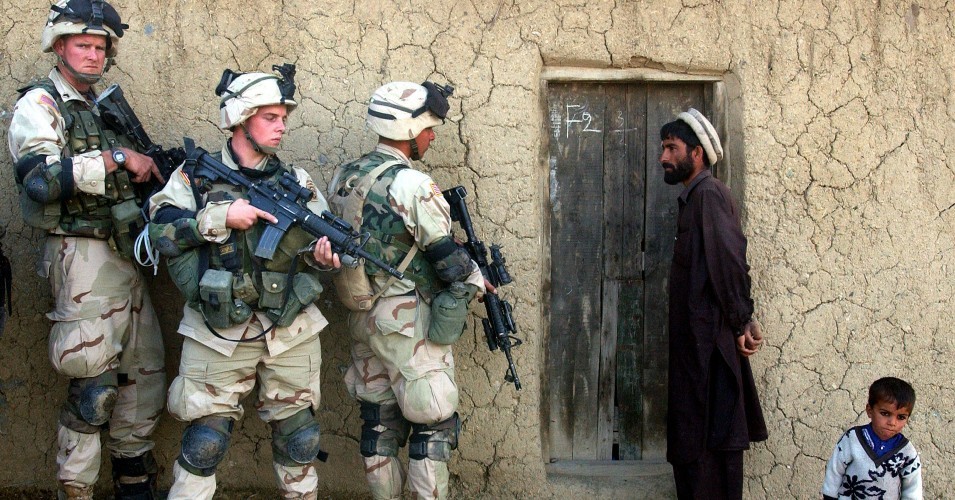Sustaining U.S. military commitment in Afghanistan has become an essential responsibility and pointless speculation that lost the ability to change the fundamental political and military elements in Afghanistan.
Biden’s organization accurately evaluated that the danger of psychological warfare from Afghanistan today is more modest than from different pieces of Africa and the Middle East. Different al-Qaeda and ISIS offshoots vigorously work in Mali and different pieces of the Sahel and North Africa. U.S. strategy ought to be designed for these destinations through tact, contingent guide, and endorses, and, perhaps infrequent strikes.
The likelihood that a psychological oppression danger will fill in Afghanistan after the U.S. withdrawal has been a critical legitimization for militarily remaining. For quite a long while, the Taliban has been consistently ascendant on the front line. In Colombia, the conflict was slowed down at a much lower level of contention when dealing with the radical guerrillas started, and the essential patterns for the Revolutionary Armed Forces of Colombia (FARC) were going down.
The inverse is the situation in Afghanistan, where Afghan security powers all around stay frail. Not forgetting that Afghanistan has consumed in a heightening rebellion. The Afghan government has normally not had any desire to do as such, and subsequently had no interest in genuinely haggling with the Taliban.
Long the United States could remain militarily and setting up the Afghan government, Kabul has had the minimal motivation to arrange. Since 2015, the U.S. way to deal with Afghanistan has been remaining and imploring — asking that the Taliban commit enough essential errors to destroy itself in the war zone. It has no possibility of achieving them with 5,000 or 10,000 soldiers remaining for another five or 10 years, not to mention less. Nor has the United States figured out how to review another vital disease of Afghanistan: the ceaselessly parochial and degenerate political tip-top.
The Taliban surrounds at any rate 12 common capitals, and without the U.S. airpower keeping down its offensives, the Taliban can jump on and hold a considerable lot of them. These imaginable misfortunes to vote-based cycles, rights, and philanthropic concerns are monstrously sad hence The United States could not, at this point turn around them. Below is statistics showing how the US spent about $2.4 Trillion in Afghanistan;
1 . $1.4 Trillion on Medical and Disability Costs
More than $350 billion has effectively gone to clinical and incapacity care for veterans of the conflicts in Iraq and Afghanistan joined. Specialists say that the greater part of that spending has a place with the Afghanistan exertion.
The last complete is obscure, however, specialists project another trillion dollars in costs over the following 35 to 40 years as injured and incapacitated veterans age and need more administrations.
2. $500 Billion on Loan Interest
To back war spending, the United States acquired intensely and will pay more than $600 billion in interest on those credits through 2023. The remainder of the obligation will require a long time to reimburse.
3. $30 Billion on Failed Operations and Programs
American dollars went to construct medical clinics that treated no patients, to schools that showed no understudies (and now and again never existed), and to army installations, the Afghans found futile and later covered.
The assessor general reported $15.5 billion in waste, misrepresentation, and maltreatment in reproduction endeavors from 2008 through 2017.
On account of American spending, Afghanistan has seen upgrades in wellbeing and instruction — however, they are inadequate contrasted and global standards.
Afghan maternal mortality stays among the most elevated on the planet, while future is among the least. Most young ladies get practically no tutoring, and instruction for young men is by and large poor.
4. $24 Billion on Economic Development
A quarter or a greater amount of Afghans are jobless, and the monetary increases have followed off since 2015 when the global military presence started to drawdown.
Abroad financial backers shrug off Afghanistan’s debasement — among the most exceedingly terrible on the planet, as per Transparency International, an anti-corruption bunch — and surprisingly Afghan organizations search for less expensive work from India and Pakistan.
5. $87 Billion Training Afghanistan Military and Police
Force The Afghan Army specifically experiences expanding setback rates and renunciation, which implies they need to prepare newcomers adding up to at any rate 33% of their whole power each year. President Barack Obama had wanted to give up complete duty regarding security to the Afghans before the finish of 2014 and to draw down all American powers by 2016. That arrangement wavered when the Taliban exploited and made strides.
6. $10 Billion to Fight Drugs Trafficking
In a report a year ago, the Special Inspector General for Afghanistan Reconstruction portrayed counternarcotics endeavors as a “disappointment.” Despite billions of dollars to battle opium poppy development, Afghanistan is the wellspring of 80% of worldwide illegal opium creation.
7. $1.5 Trillion on War
The $1.5 trillion in war spending stays hazy, however, the Defense Department declassified breakdowns of a portion of the three latest long periods of expenditure.
The vast majority of the cash nitty-gritty in those breakdowns —around 60% every year — went to things like preparing, fuel, shield vehicles, and offices. Transportation, for example, air and ocean lifts, took up around 8%, or $3 billion to $4 billion per year





